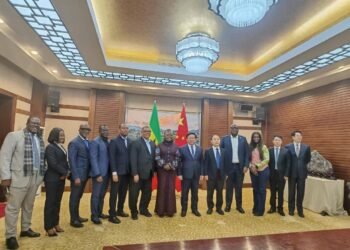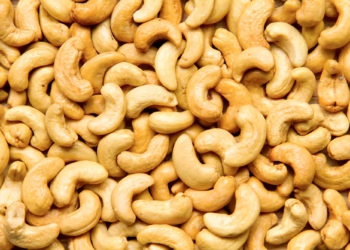Ghana stands on the precipice of a significant economic setback as it faces a potential ban on exporting fish and fish products to the European Union (EU) due to persistent illegal fishing practices.
Dr. Angela Lamptey, a Senior Lecturer at the Department of Marine and Fisheries Science at the University of Ghana, has raised alarms about the critical situation, emphasizing the urgent need for remedial actions to avert this looming threat.
The gravity of the situation is underscored by the fact that Ghana has already been issued a yellow card by the EU. This warning serves as an official notice that the country is engaging in unwholesome fishing practices, which pose risks to both consumer health and the environment. The yellow card indicates that Ghana’s current practices and regulatory frameworks are insufficient to meet EU standards for sustainable and safe fishing.
Dr. Lamptey highlighted these concerns following her address to stakeholders at an Iwatch Africa meet-up with coastal communities in Ghana. The event, which discussed a recent report on the challenges facing the fishing industry, provided a platform for experts and community members to deliberate on solutions. According to Dr. Lamptey, the yellow card reflects a broader issue: the lack of effective monitoring systems and legal frameworks to regulate the fishing industry in Ghana.
The implications of an EU ban on Ghana’s fish exports are far-reaching. Dr. Lamptey warned that such a move could trigger similar actions from other countries, leading to a significant loss in foreign exchange earnings. This economic impact would be felt across various sectors, exacerbating the challenges already faced by the nation’s economy.
“We fear other countries may follow suit if the EU goes ahead to ban our fish from their market, and we may also lose foreign exchange earnings from that area,” Dr. Lamptey expressed. Her concerns are well-founded, considering the importance of the fishing industry to Ghana’s economy and the livelihoods of many coastal communities.
Concerted Efforts Within The Sector
Efforts are underway to address these issues and reverse the negative trends. Dr. Lamptey assured stakeholders that there is a concerted effort within the sector to implement necessary changes and improvements. “We are putting in more efforts to make things right. We hope that the EU will assess us again and provide the necessary recommendations,” she said. This proactive stance involves enhancing monitoring systems, strengthening legal frameworks, and promoting sustainable fishing practices.
The collaboration of all partners is crucial to avoid a ban and restore confidence in Ghana’s fishing industry. Dr. Lamptey emphasized the need for collective action, stating that stakeholders must join forces to achieve the desired outcomes. The government, regulatory bodies, and industry players must work together to implement robust measures that ensure compliance with international standards.
The situation also calls for increased awareness and education among local fishing communities about the importance of sustainable practices. Engaging these communities in the reform process is vital, as they play a key role in the industry’s operations. By fostering a culture of compliance and sustainability, Ghana can protect its marine resources and secure its position in the global market.
The potential EU ban on Ghana’s fish exports serves as a stark reminder of the need for stringent regulatory measures and sustainable practices in the fishing industry. Dr. Lamptey’s warnings highlight the urgency of the situation and the collective responsibility required to address it. By taking immediate and decisive actions, Ghana can avert the ban, safeguard its economy, and promote a sustainable future for its fishing industry.
READ ALSO: Gyampo Condemns NAPO’s Remarks on Dr. Kwame Nkrumah























